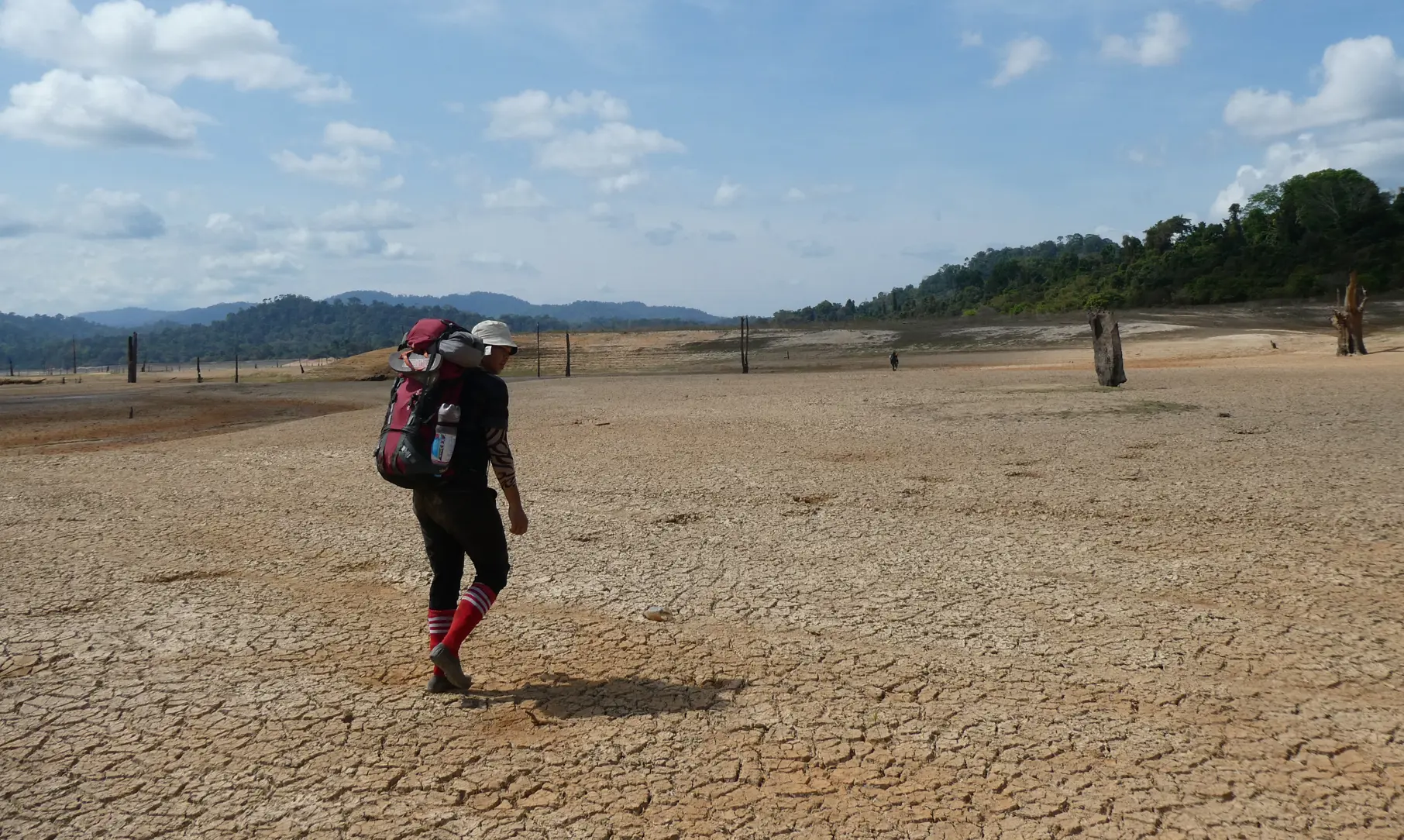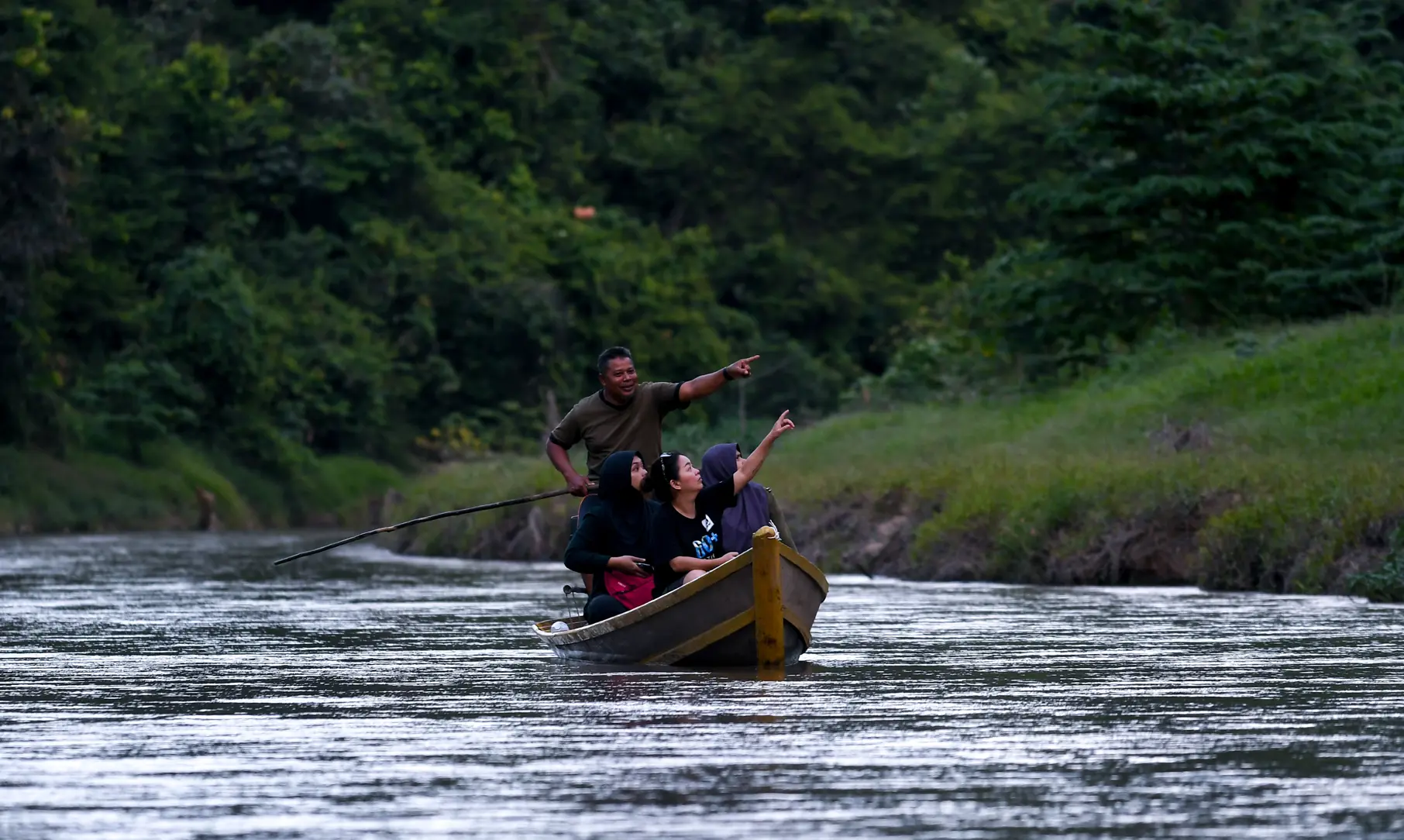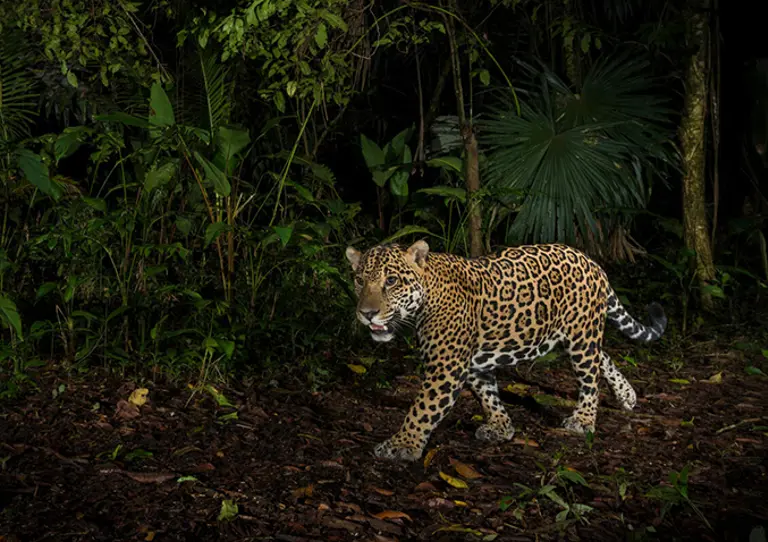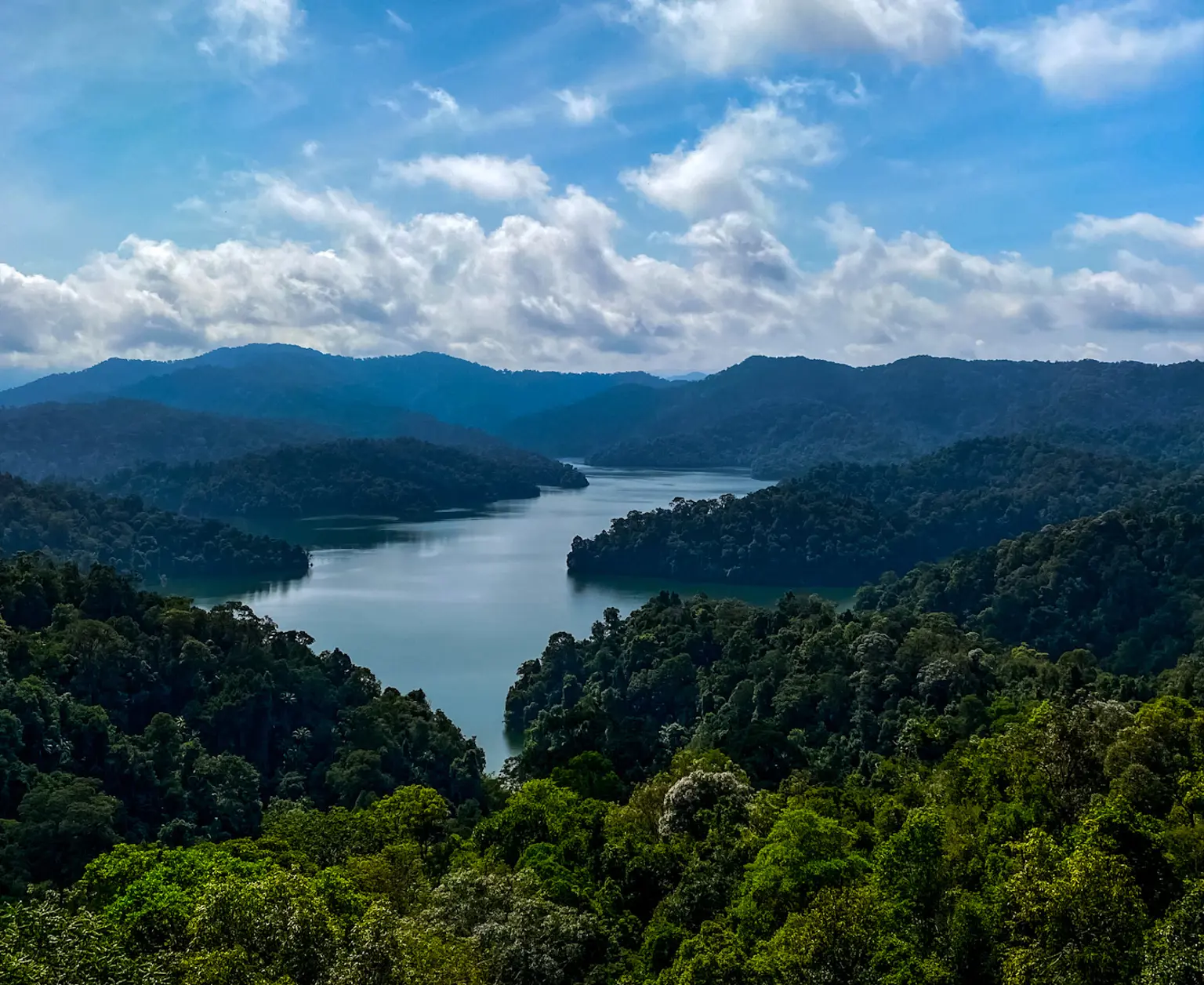A Malásia possui algumas das florestas de planície mais antigas e com maior biodiversidade do planeta. Infelizmente, o desmatamento e a degradação das florestas, as mudanças climáticas e os conflitos entre humanos e animais selvagens estão ameaçando as florestas e a biodiversidade em toda a Malásia. Estamos trabalhando em parceria com o WWF-Suíça e o WWF-Malásia em um projeto para proteger uma das muitas florestas cruciais do país.
Lançado no início de 2024, nosso projeto se concentra no Complexo Florestal Ulu Muda, localizado no estado de Kedah, na parte noroeste da Malásia Peninsular. A floresta é o lar de uma grande diversidade e quantidade de plantas e animais, incluindo uma grande população de elefantes asiáticos ameaçados de extinção. Muitos habitantes locais dependem do ecossistema da floresta para sua subsistência.
Com o apoio de parceiros locais, o projeto tem como objetivo aprimorar o gerenciamento de mais de 170.000 hectares de floresta e guiar a restauração de 25 hectares de área degradada na paisagem.
Nosso objetivo é garantir uma paisagem resiliente que possa continuar a fornecer serviços vitais de ecossistema para a região norte da Malásia Peninsular, garantindo a segurança hídrica que possibilita o crescimento econômico, além de contribuir para a segurança alimentar do país.
Proteção do ecossistema florestal
O Complexo Florestal Ulu Muda abrange cerca de 164.000 hectares de floresta abundante em oito reservas florestais interligadas. Juntamente com seu corredor ecológico, toda a paisagem se estende por mais de 170.000 hectares. Como uma das últimas grandes florestas de planície intactas remanescentes na Malásia, é um hotspot de biodiversidade.
Apesar de sua importância, o ecossistema florestal está ameaçado. Cerca de 80% da floresta é destinada à produção de madeira. O solo solto durante a colheita de madeira é levado para os cursos d'água, degradando a qualidade da água. Além disso, secas e inundações periódicas, intensificadas pelas mudanças climáticas, pioraram o risco para a segurança hídrica e alimentar. À medida que seu habitat diminui e o desenvolvimento do uso da terra na borda da floresta se intensifica, os elefantes estão invadindo as aldeias próximas, causando conflitos com a população local.

Nosso projeto espera mudar isso. Para melhorar o gerenciamento e a conservação na região, a equipe de conservação do WWF Malásia monitorará a área e conduzirá esforços para defender sua proteção. Os locais críticos para reflorestamento serão identificados e restaurados, envolvendo vários métodos de restauração, monitoramento e manutenção.
Ao mesmo tempo em que serve de refúgio para uma abundância de vida selvagem, mais de 4.900 pessoas de vilarejos vizinhos dependem de Ulu Muda para obter água, alimentos e meios de subsistência.
A maioria da população local ganha a vida com o extrativismo da borracha, a pesca, a navegação, o ecoturismo e outras atividades tradicionais ligadas à floresta. Como uma importante bacia hidrográfica, as florestas de Ulu Muda fornecem água para atender às significativas necessidades domésticas, industriais e agrícolas, incluindo a irrigação necessária para a produção de arroz em Kedah, um estado conhecido como o "Rice Bowl" da Malásia.

Sabemos que as comunidades locais estão profundamente ligadas à Ulu Muda e aos serviços que ela oferece. Juntamente com as atividades de restauração e gerenciamento, o projeto ajudará a aumentar a conscientização sobre a importância da floresta e capacitará as comunidades locais a defender os esforços de conservação.
Leia sobre nossos outros projetos de parceria
Restaurando paisagens florestais no México e conectando paisagens importantes na Tailândia
No Mexico, nosso projeto está melhorando o gerenciamento da paisagem em 100.000 hectares e reflorestando e restaurando mais 750 hectares de floresta degradada.
Na Thailand, nosso objetivo é contribuir para a meta de 30% do país até 2030, apoiando a conservação e o gerenciamento aprimorado para melhorar as condições das florestas.

Todas as fotos © ou usadas com permissão do WWF.

